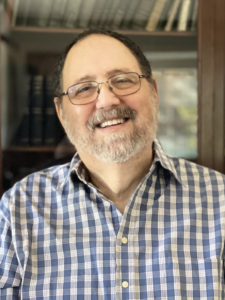
By Rabbi Lance J. Sussman
Parshat Vayechi
The French writer Jean-Baptiste Alphonse Karr (1808-1890) is best known for his aphorism, “Plus ça change, plus c’est la même chose“ or “The more things change, the more things remain the same.”
For better or worse and contrary to popular perception, the application of Karr’s insight to Jewish history confirms that internecine conflict, not communal unity, characterizes much of the Jewish experience. For example, in ancient Israel, the united monarch quickly dissolved into two different states. Better known is the Chanukah story which, refocused on tensions in the Jewish story, is as much a story of civil war as it is of resistance to assimilation and the quest for religious freedom as most American Jews would understand it.
This week’s Torah portion, Vayechi, which concludes the Book of Genesis, points to substantial tensions among the Hebrew tribes. Jacob’s blessing (Genesis 49) begins with an appraisal of the tribe of Reuben as “unstable as water” (verse 4). The patriarch then proclaims that the “kinship” of Simeon and Levi are “weapons of violence” and that they will be divided and scattered. Dan, Jacob teaches, will behave like “a serpent in the way” and that Benjamin is a warlike wolf (verses 5-27).
In short, the Torah hardly offers a picture of familial harmony on the eve of liberation from Egyptian slavery or of peaceful coexistence in Israel.
What about today? Deep divisions exist in the Jewish community over the question of “Who is a Jew,” including the authenticity of conversion performed by different streams of Judaism, the Jewishness of various groups in Africa and India, the religious status of immigrants from East Europe to Israel and the scope of Israel’s Law of Return.
In particular, the religious and legal legitimacy of non-Orthodox Judaisms, not unlike 40 years ago, is again in the headlines in the Jewish world as a new government takes shape in Israel. In addition to these issues, basic questions about the place of the LGBTQ+ community and the question of settlements and a two-state solution are in play.
In particular, the inclusion of far-right-wing politicians like Avi Maoz of the Pleasantness party, Bezalel Smotrich of the Religious Zionism party and Itamar Ben-Gvir from the Jewish Power party have raised concerns, not only about the preservation of even a modicum of Jewish unity, but about the democratic (and secular) nature of Israeli society.
Calls to shut down egalitarian prayer areas near the Western Wall and to repeal the grandparent clause of the (amended) Law of Return have set off alarm bells across the Jewish world. Defenders of the emerging coalition insist that Israel is a true democracy, and the will of the Israeli electorate is above moral judgments.
By contrast, Netanyahu’s critics are concerned that Israel is moving beyond the bounds of a democratic state and risks delegitimizing itself in the eyes of the world and the majority of the Jewish people.
Yet again, we have a moment of reckoning in the Jewish world and sadly are experiencing the truth of Karr’s teaching that “the more things change, the more they stay the same.”
Perhaps some comfort can be found in this week’s Torah portion in Jacob’s words that “the scepter shall not depart from Judah nor the ruler’s staff from between his staff as long as men come to Shiloh” (verse 10). In other words, despite all the tensions and controversies, it may yet be possible that a higher, transcendent unity in Jewish life will remain, that we can have our internal conflicts and still remain a single people and not dissolve into irreconcilable factions. Certainly, our common enemies hope for our dissolution as a people.
Let us pray that, in the words of Jacob, we will continue “to come to Shiloh” and remain, in spirit and in practice, Am Echad, a single people.
Rabbi Lance J. Sussman is a professor of Jewish studies at Gratz College and scholar-in-residence of the Holocaust Awareness Museum and Education Center. He was the senior rabbi of Reform Congregation Keneseth Israel for 21 years and was named rabbi emeritus in July 2022. The Board of Rabbis of Greater Philadelphia is proud to provide diverse perspectives on Torah commentary for the Jewish Exponent. The opinions expressed in this column are the author’s own and do not reflect the view of the Board of Rabbis.



